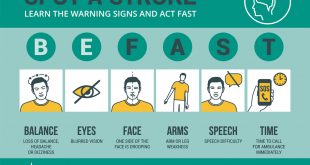By Christine King, PA-C
Urinary tract infections (UTIs) are a common concern among postmenopausal women, often posing significant discomfort and potential complications. The shift in hormone levels during menopause alters the urinary tract’s environment, making women more susceptible to these infections. However, several preventive measures and treatment strategies can help manage and alleviate UTIs in this demographic.
Understanding UTIs in Postmenopausal Women
Postmenopausal hormonal changes result in reduced estrogen levels, impacting the urinary tract’s defense mechanisms. The decline in estrogen compromises the lining of the urinary tract, weakening its ability to ward off bacteria. As a consequence, bacteria, primarily E. coli, can thrive and cause UTIs more easily in postmenopausal women.
Preventive Measures
1. Hydration: Encouraging adequate water intake helps flush out bacteria from the urinary system, reducing the risk of infection.
2. Cranberry Products: While controversial, some evidence suggests that cranberry products may prevent bacteria from adhering to the urinary tract lining, potentially reducing UTI occurrences.
3. Maintaining Good Hygiene: Proper genital hygiene, including wiping from front to back after using the restroom, helps prevent the spread of bacteria to the urinary tract.
4. Avoidance of Irritants: Limiting consumption of caffeine, alcohol, and spicy foods can help minimize irritation to the bladder and urinary tract.
5. Regular Urination and Emptying Bladder Completely: Postmenopausal women should ensure regular, complete emptying of the bladder to minimize the chance of bacterial growth.
Treatment Approaches
1. Antibiotics: Most UTIs in postmenopausal women are treated with a course of antibiotics. However, antibiotic resistance is a concern, necessitating proper diagnosis and prescription by a healthcare professional.
2. Estrogen Therapy: Topical estrogen therapy can help restore the lining of the urinary tract, enhancing its defense against bacteria. It’s an option worth discussing with a healthcare provider for some women.
3. Natural Remedies: Probiotics, D-mannose, and herbal supplements are being explored for their potential in preventing and treating UTIs. While further research is needed, some women find relief through these alternatives.
4. Home Remedies for Comfort: Applying a heating pad to the abdomen or using over-the-counter pain relievers can alleviate discomfort while waiting for medical treatment.
UTIs in postmenopausal women can significantly impact their quality of life, but preventive measures and effective treatment approaches exist to manage and reduce the frequency of these infections. It’s crucial for women experiencing UTI symptoms to seek prompt medical attention to avoid complications and receive appropriate treatment tailored to their individual needs.
The Center for Urogynecology and Female Pelvic Health in Venice, Florida, provides comprehensive and personalized care in a relaxed, spa-like office. Under the care of John Devine, MD, a fellowship-trained urogynecologist, along with practitioner, Christine King, the practice specializes in women’s pelvic health and urogynecology, providing care for women of all ages, from adolescents to adults.
The Center for Urogynecology and Female Pelvic Health provides comprehensive evaluations of female pelvic health concerns. Services include gynecology care to manage general health and wellness, as well as the evaluation and treatment of conditions and symptoms arising from menopause.
The practice also specializes in urogynecology, which is an OB/GYN subspecialty that focuses on the diagnosis and treatment of female urinary incontinence and pelvic floor disorders, like pelvic organ prolapse.
The Center for Urogynecology and Female Pelvic Health also provides care to women struggling with interstitial cystitis or fecal incontinence. Additionally, Dr. Devine and Christine King offers consultations and surgical treatment for women experiencing complications from mesh.
Please call 941-457-7700 to schedule your appointment today.
 Southwest Florida's Health and Wellness Magazine Health and Wellness Articles
Southwest Florida's Health and Wellness Magazine Health and Wellness Articles

